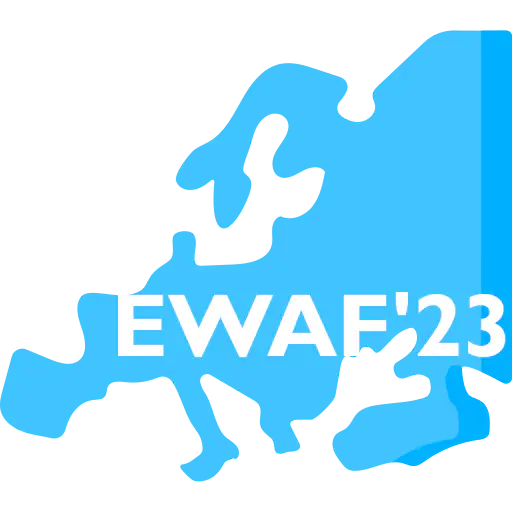Call for Papers - European Workshop on Algorithmic Fairness 2023
EWAF 2023 - Zurich, Switzerland
 Image credit: EWAF
Image credit: EWAFFriends of mine Corinna Hertweck and Jose Alvarez are organizing the 2nd European Workshop on Algorithmic Fairness (EWAF)! The workshop will take place from 7-9 June 2023!
The main idea of this 3-day workshop is to bring together researchers working on algorithmic fairness in the context of Europe’s legal and societal framework!
The workshop will take place in person on the campus of the Zurich of Applied Sciences in Winterthur, Switzerland. With Switzerland being located at the heart of Europe, and hopefuly that can bring researchers from across the continent together. If you don’t want to read further here, please visit their website… they certainly have more up-to-date information!
Motivation
Algorithmic fairness is a rapidly growing research area, and the importance of this field is only going to increase over the next years. The discussion predominantly involves US-based researchers, but more and more researchers in Europe are conducting research in this domain.
EWAF’s goal is to foster the dialogue between researchers working on algorithmic fairness in the context of Europe’s legal and societal framework, especially in light of the EU’s attempts to promote ethical AI.
The idea for EWAF'23 is not to simply bring together researchers who happen to be based in Europe but rather to explore the issue of European specificity, learning from sociological consideration and the case studies based on concrete European instances of algorithmic design and regulation that machine learning scholars have encountered in their own work. Furthermore, they also want to explore the implications of the European legislative framework for the debate on fairness in machine learning and AI more broadly.
Call for Papers
This year, we aim to bring the issue of European specificity to the fore and to discuss questions such as “what, if anything, is specifically European in the debate about fairness in machine learning?”. For this reason, they especially welcome submissions involving:
- Empirical and theoretical perspectives from social sciences on fairness and discrimination in Europe (e.g., analysis of labor markets, the concept of class or race, discrimination against minorities in different social contexts).
- Case studies based on concrete European instances of algorithmic design and regulation that machine learning scholars have encountered in their own work (e.g., datasets or audits of automated decision-making systems that are used in Europe).
- An analysis of the implications of the European legislative framework for the debate on fairness in machine learning and AI more broadly (e.g., specificities connected to anti-discrimination and data collection legislation and the emerging regulatory frameworks for platforms and AI).
They also welcome submissions lacking European specificity, especially if they are of outstanding quality. General areas of interest are:
- Algorithm development and algorithm evaluation (e.g., fairness metrics, methods for qualitative evaluations, bias mitigation techniques, data collection, causality)
- Philosophy (e.g., values embedded in fairness metrics, foundations of ethical AI)
- Social sciences (e.g., historical perspectives on discrimination, impact of algorithms on marginalized groups, perceptions of (un)fairness, AI and labor)
- Policy and law (e.g., non-discrimination law, data protection law, accountability, regulation of bias checks)
Submissions including European specificity will be prioritized, other things being equal.
They are taking an interdisciplinary approach. This means that they are interested in work from a variety of fields including but not limited to mathematical, philosophical, computer science, legal, psychological, sociological, critical studies and management perspectives.
Submission
There are two types of submissions: short and long submissions.
Long submission
- Length: A full paper of 10-15 pages (plus unlimited pages for references).
- Archival submission: Accepted papers shall be submitted to CEUR-WS.org for online publication of the workshop proceedings.
- Dual submission policy: It is not permissible to submit work that is under review or has been accepted for publication at another venue. It is also not permissible to submit already published work.
Short submission
- When to choose this: If you want to present work that is not ready for publication yet or if you want to get feedback from the interdisciplinary audience at the workshop about papers that are already published or under review.
- Length: An extended abstract of 1-2 pages (plus unlimited pages for references)
Proceedings shall be submitted to CEUR-WS.org for online publication. Please use EWAF’s version of the CEUR-WS.org template for your submission. The zip file with the templates contains both a Word and LaTeX template; you can choose either one. Alternatively, you can also use EWAF’s Overleaf template - just create a copy of the project by clicking on ‘copy project’ in the menu when you’re logged in and start editing it. Whatever template you choose, please make sure to use the 1-column format.
- Submission deadline: 9 February 2023 (11:59pm AoE)
- Acceptance notifications: 23 March 2023
- European Workshop on Algorithmic Fairness: 7-9 June 2023
- Submission website: EasyChair (visit the website as it is not present on the website as of 12/20/2022)